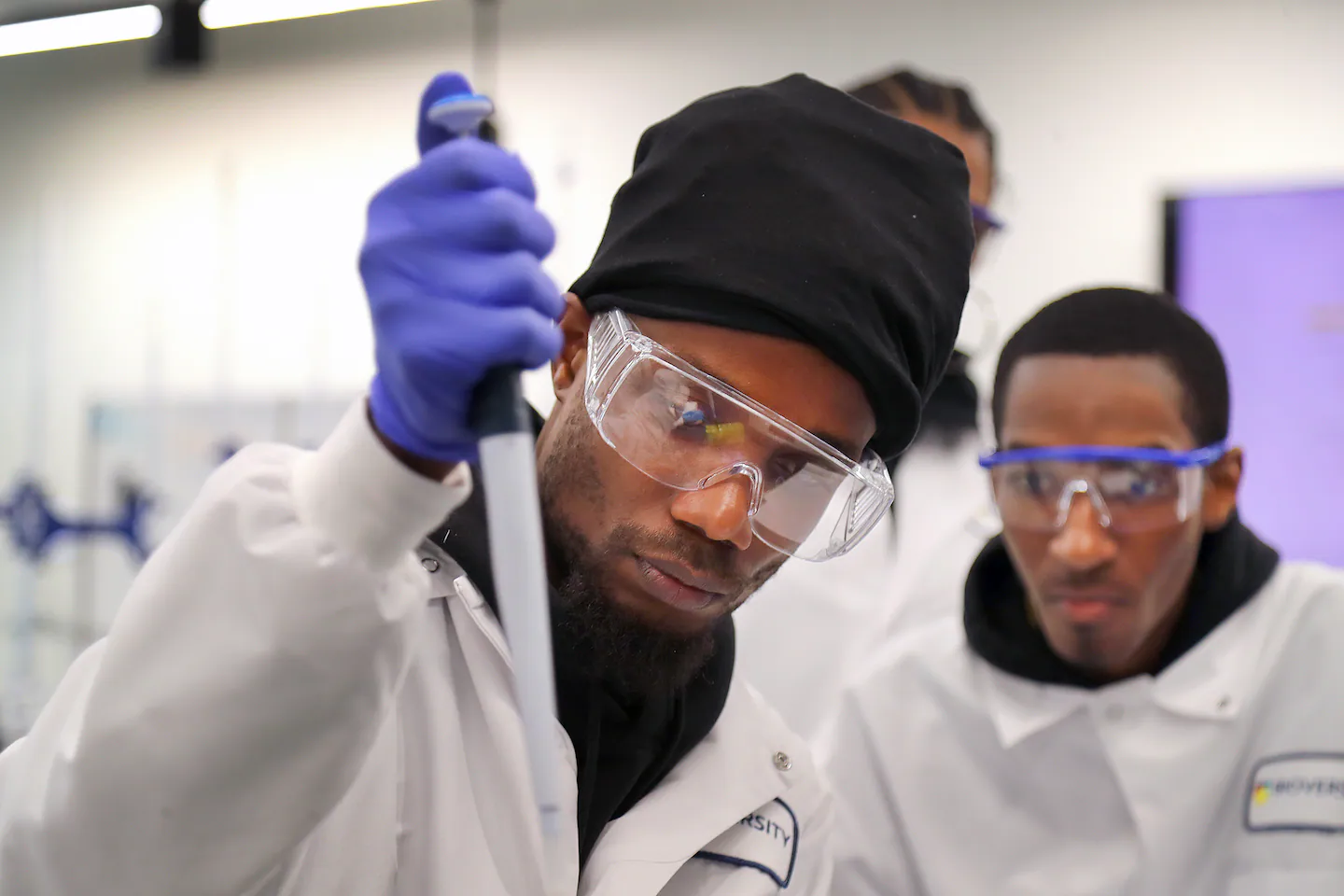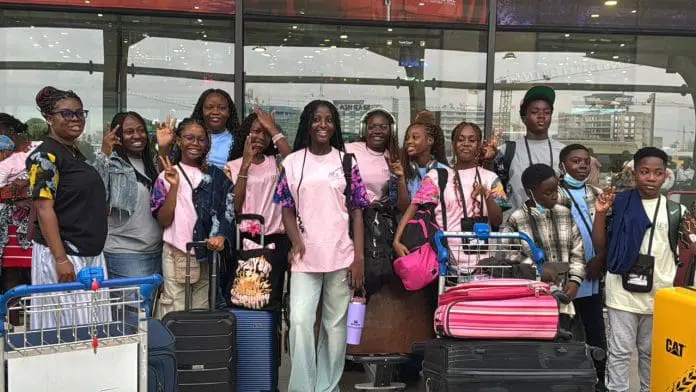
Olivier, 27, is among the scores of local workers who see the promise of biotechnology even as venture capitalists and other investors pull away from the sector. Enrollments in entry-level training programs are holding steady or growing despite the declining number of placements into full-time positions.
At the Biotech Career Foundations program, run by the nonprofit workforce training group Bioversity, placements have fallen to 50 percent from 75 percent in 2024. But the program is still filling its classes and on track to graduate 56 more lab technicians this year.
For Olivier and his classmates, the prospects of higher pay, regular hours, comprehensive benefits, and the chance to grow at name-brand companies are worth the risk of completing the training without a job. At the worst, they say, they are gaining skills that will position them for new opportunities when biotech rebounds.
“It’s like any market. I worked in the culinary industry for 11 years, and I’ve experienced [downturns] in the culinary industry, too,” Olivier said. “Don’t get me wrong, I know it’ll be a process. But I’m not worried.”
The Massachusetts biotech industry soared during the COVID-19 pandemic, led by companies such as Cambridge vaccine maker Moderna and buoyed by billions of dollars in private and public investment into treatments for diseases from cancer to Alzheimer’s to rare genetic disorders. But as the pandemic faded and interest rates jumped, investment plunged.
Venture capital investment in the Massachusetts biotech industry fell by $2.75 billion in first half of 2025 alone. Companies have slashed hundreds of jobs in the first half of the year, while more than 17 million square feet of lab space sit empty.
Zach Stanley, Bioversity’s executive director, said his organization, founded by the industry group Massachusetts Biotechnology Council, is being upfront about biotech’s struggles and the tough job market.
“If you’re applying to 10 roles,” Stanley tells applicants to the training program, “if you get one interview, you should consider yourself very lucky.”
Still, people keep enrolling. Daqnya Johnson, 33, left her job as a medical assistant to enroll in Bioversity. Though the job paid well, she said, it didn’t offer the potential career path of biotech — a career she can see herself in 10 years from now.
The incentives for workers to train for a biotech job remain strong even when jobs are hard to come by. Bioversity trainees typically double their salaries in their first biotech job, and only continue to increase their earning as they advance, said Stanley. Another biotech training program, run by the Cambridge social services provider Just A Start, aims for participants to average a $20,000 salary increase after completing the program.
Just A Start has offered biotech training since 1992, graduating more than 700 lab technician students. This success spurred the nonprofit this summer to launch an accelerated program that provides 90 hours of lab-experience over nine weeks.
Just A Start doubled the enrollment in its nine-month program to 36 from 18, and filled all 20 slots in its accelerated program. Among those accepted into the inaugural class of the accelerated program were a card dealer at Encore casino in Everett who worked overnights so he could come to class during the day, a student who had to pause her studies because college got too expensive, and a pastor at a small church who needed to find additional income for his family.
During a lab exercise recently, anxiety permeated Just A Start’s Cambridge lab space, as students tried to transfer microscopic proteins from a delicate gel onto a white filter to perform a western blot, a lab procedure used for protein analysis.
A more constant anxiety lingered, too — about whether the weeks of training would yield a job.
Lexi McManus, 35, previously worked sales and wine buying, but developed an interest in science and medicine after a car accident left her with a prosthetic leg. The Brighton resident said she felt well supported at the biotech program, but apprehensive about the job search.
“I guess it’s just that the career switch is a big change,” she said.
Brandon Roberts, 42, is also making a career shift. He worked in information technology for 15 years before getting laid off in March. An Army vet with project management experience, Roberts said he felt positive about his job search, even though he hadn’t gotten any interviews six weeks into the program.
In addition to technical exercises, the course also offers training in interviewing, resume writing, social media, and job searching. Relationships with local companies can put program enrollees in front of recruiters.
“Having things outside of technical learning, like fixing our LinkedIn accounts, going over cover letters and resumes,” said Roberts, who lives in Dorchester, “that’s going to give us more confidence in our job searches than others probably have,”
The cohort graduated at the end of August. As of Monday, only one student had landed a job.
“The growth has leveled off,” said Korynn Stoyanoff, director of adult career training at Just A Start. “You may have to apply to twice as many jobs now to get one to land, you might have to expand the radius of where you’re willing to take a job.”
Ismatara Khatun, who completed Just A Start’s nine-month program in May, is still searching for a job. Khatun, who moved here from Bangladesh, got an interview for a lab assistant position at Harvard Medical School right after graduation, but was told two days later that the role was no longer being filled. She’s had no luck since.
“A lot of my friends and family here, they did this program. Everybody got a job and they are doing good,” Khatun said. “But right now, the job market is totally different. It looks like a disaster.”
But the worst might be over. Biotech stocks are up more than 25 percent from their recent bottom in April, according to the Nasdaq Biotechnology index. Some federal research funding has been restored, and the National Institutes of Health is on track to spend its entire budget by Sept. 30. Large international companies that set up shop in Massachusetts aren’t going anywhere.
Since graduation in August, Olivier’s class has racked up 36 interviews with life sciences companies and three job offers, one of which was accepted.
Olivier is optimistic about the industry and his prospects. The Bioversity program not only trained, but also inspired him. After getting exposed to photospectrometers and other advanced machinery manufactured by the Waltham scientific toolmaker Thermo Fisher, Olivier sees a future.
All he needs, he said, is a chance to get a foot in the door.
“I want to work for a company like Thermo Fisher,” he said. “I want to be in actual machine manufacturing where I’m making the machines that are going to be in the hospital.”



